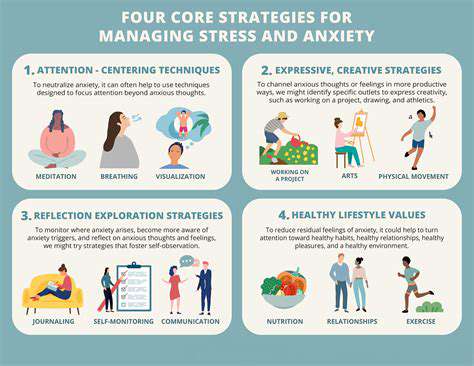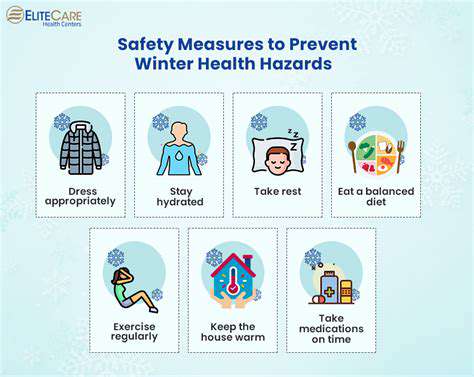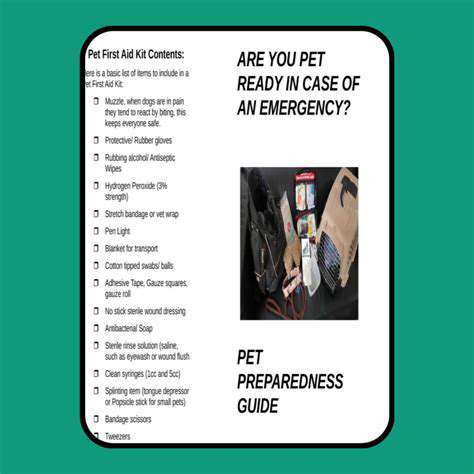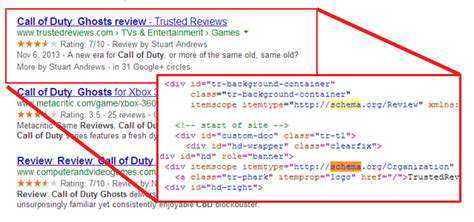Preparing Your Pet for Surgery: Pre Op Care Tips
Pre-Procedure Preparation: Physical Well-being
Your pet's physical health should be the top priority before any medical procedure. A complete check-up by your vet a few days beforehand is ideal. Checking vital signs, weight, and overall condition helps the veterinary team prepare for any issues and customize the procedure. Knowing your pet's full medical history, including allergies or existing conditions, is absolutely essential. Don't hesitate to share any odd behaviors or health changes with your vet in the days before the appointment.
Nutrition plays a key role in getting your pet ready physically. Stick to regular feeding times in the week before the procedure to prevent stomach issues. If your vet suggests a special diet, follow it exactly. Keeping your pet hydrated is just as critical. Always provide fresh water to support their body functions and lower stress during the procedure.
Emotional Well-being and Stress Reduction
Reducing stress is vital when preparing your pet for a medical procedure. Keep their environment calm and predictable in the days leading up to it. Maintain normal routines and create a peaceful home atmosphere. Familiar items like favorite blankets or toys can provide comfort.
Many pets benefit from calming methods such as gentle petting or pheromone products. Ask your vet about stress-reducing options, especially if your pet shows anxiety signs like pacing, excessive panting, or hiding. For pets who get nervous during car rides, try taking short practice trips before the procedure day.
Try to schedule the procedure when your pet is usually relaxed, and minimize exposure to loud noises or strange sights that might upset them.
Practical Preparations: Logistics and Communication
Organizing the practical details helps everything go smoothly. Gather all necessary documents - vaccination records, medical history, and any prescriptions. If your pet takes medication, make sure you have it ready and understand the dosing instructions. Plan safe transportation to the clinic, using a carrier your pet knows if possible.
Have an open conversation with your vet about any concerns or questions regarding the procedure. Ask about how long it will take, recovery expectations, and aftercare instructions. Make sure you completely understand both the potential benefits and risks before giving your approval. This collaborative approach ensures the best preparation for your pet.
Dietary Considerations Leading Up to Surgery
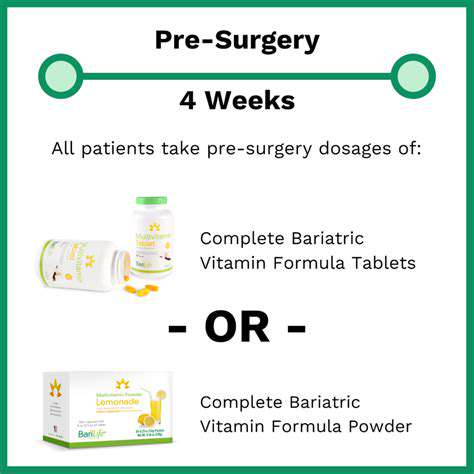
Pre-Event Meal Planning
Thoughtful meal planning is essential before any significant physical activity. Complex carbohydrates provide lasting energy, while lean proteins help with muscle recovery. Avoid fatty and sugary foods right before the event as they may cause digestive issues. Eating a balanced meal several hours beforehand supports peak performance.
Hydration matters just as much. Drinking plenty of water in the days before and hours leading up to the event maintains electrolyte levels. Staying properly hydrated prevents energy drops and muscle cramps.
Hydration Strategies
Proper fluid intake is crucial for good performance. Regular water consumption before, during, and after activity maintains energy and prevents exhaustion. Dehydration can seriously affect performance and cause health problems. Drink water consistently throughout the day, particularly before the event. While electrolyte drinks help replace minerals, water usually suffices.
Listen to your body's thirst signals. Drink when you feel thirsty rather than waiting until you're severely dehydrated. This approach supports better performance and overall health during and after your activity.
Food Sensitivities and Allergies
Understanding how your body reacts to different foods is especially important before physical exertion. Knowing about any food sensitivities or allergies helps avoid discomfort or reactions during the event. If you have known issues, plan your meals carefully to prevent problems.
Consult a healthcare professional or nutritionist if you need help creating a personalized eating plan.
Timing of Meals and Snacks
When you eat before an event significantly affects your energy levels and digestion. A substantial meal several hours beforehand allows proper digestion and sustained energy. Smaller snacks closer to the event can maintain blood sugar and prevent energy drops.
Consider the activity type and duration when planning meals. Longer events may require more complex carbs than shorter ones.
Macronutrient Balance
A good balance of carbs, proteins, and fats supports peak performance. Carbs fuel your energy, while proteins help muscles recover. Fats provide important nutrients for body functions.
This balanced approach gives your body what it needs to perform well and recover properly.
Individual Needs and Considerations
Everyone has unique dietary requirements. Age, activity level, and health status all affect what diet works best before an event. A nutritionist or healthcare provider can help create a personalized plan.
Pay attention to how your body responds to different foods. Trying various meal plans helps you find what works best for your performance.
Dietary Restrictions and Adaptations
Those with special diets (vegetarian, vegan, etc.) need careful meal planning to meet nutritional needs. Adapting meals to fit restrictions while maintaining energy levels is key. Make sure you get enough protein, iron, and other essential nutrients.
Consider working with a dietitian who specializes in dietary restrictions for personalized guidance.
Managing Anxiety and Stress: A Calm Approach
Preparing Your Pet for Surgery: Pre-Op Anxiety Management
Helping your pet stay calm before surgery greatly affects their recovery. A peaceful, predictable environment before the procedure lowers their stress, reducing potential complications. Keep routines normal, minimize loud noises, and create a safe, comfortable space for your pet.
Know your pet's normal behavior to spot signs of increasing stress. Watch for changes in eating habits, unusual sounds, or hiding. Recognizing these signs early lets you provide needed support.
Minimizing Stress During Transportation
Car rides often stress pets, especially anxious ones. Use a familiar, comfortable carrier to reduce this stress. Get your pet used to the carrier beforehand by letting them spend positive time in it.
Drive smoothly and avoid loud noises. Your calm presence helps. Consider using calming pheromone products in the carrier to create a soothing environment.
Pre-Surgical Medications and Sedation
Medications can significantly reduce pet anxiety before surgery. Your vet can recommend appropriate options based on your pet's needs. Follow dosing instructions carefully for best results.
Sedation might be used during the procedure to minimize stress and discomfort. Your vet will decide if this is necessary based on your pet's condition.
Creating a Calming Environment at Home
A peaceful home before surgery helps reduce pet anxiety. Keep noise levels low and provide a quiet retreat space. Maintain normal routines for feeding and playtime to create security.
Avoid introducing new people, animals, or changes to their environment right before surgery.
Post-Surgical Care and Recovery
After surgery, create a quiet recovery space where your pet can rest undisturbed. Ensure access to food and water, and watch for signs of discomfort. Follow pain medication instructions exactly.
Proper pain management promotes healing and reduces stress. Your vet's guidance is crucial for successful recovery.
Preparing Your Pet's Living Space for Post-Surgery Recovery
Pre-Surgery Preparation: Creating a Safe Haven
Before surgery, prepare a recovery space that's quiet, comfortable, and safe. Choose an area away from other pets and household traffic. Restrict access to stairs or places where your pet might jump.
Use bedding your pet loves - soft blankets, a favorite bed, or a familiar crate. Keep the area at a comfortable temperature, neither too hot nor too cold.
Providing Essential Comfort and Support
After surgery, your pet needs extra comfort. Handle them gently and avoid rough play. Provide easy access to water and offer easily digestible food if approved by your vet.
Ensure plenty of quiet rest time. Limit interactions and provide a soft resting area to prevent overexertion.
Managing Pain and Discomfort
Proper pain management is critical. Give medications exactly as directed and watch for behavior changes. Contact your vet immediately if pain seems worse.
Limit movement as recommended by your vet to prevent injury to the surgical site.
Preventing Complications and Encouraging Healing
Keep the recovery area clean to prevent infection. Watch for signs like swelling, redness, or discharge at the surgery site. Contact your vet if you notice anything unusual.
Follow all post-op instructions regarding activity levels and follow-up appointments for optimal healing.
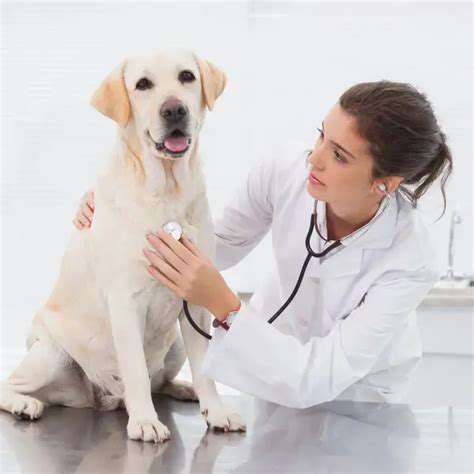
Read more about Preparing Your Pet for Surgery: Pre Op Care Tips
Hot Recommendations
- Customized Sleep Schedules: AI Driven for Sustainable Rest
- Crafting a Personalized Productivity Plan for Mental Clarity
- Sustainable Self Compassion: Cultivating Kindness Towards Your Mind
- Sustainable Productivity Hacks for the Busy Professional
- Sustainable Wellness for Parents: Balancing Family and Self Care
- Data Informed Self Care: Designing Your Personalized Wellness Strategy
- Sustainable Wellness for a Purpose Driven Life
- AI Assisted Mindfulness: Personalized Meditations for Deeper Practice
- Building Inclusive Mental Health Services: Key Initiatives
- AI Powered Self Care: Customizing Your Routine for Maximum Impact


